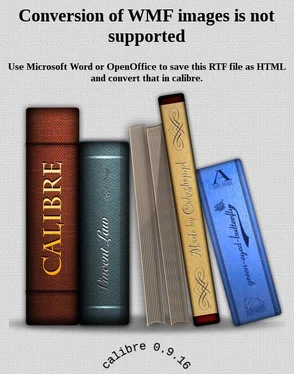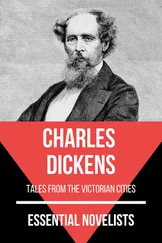Charles Dickens - Speeches - Literary & Social
Здесь есть возможность читать онлайн «Charles Dickens - Speeches - Literary & Social» весь текст электронной книги совершенно бесплатно (целиком полную версию без сокращений). В некоторых случаях можно слушать аудио, скачать через торрент в формате fb2 и присутствует краткое содержание. Жанр: Классическая проза, на английском языке. Описание произведения, (предисловие) а так же отзывы посетителей доступны на портале библиотеки ЛибКат.
- Название:Speeches: Literary & Social
- Автор:
- Жанр:
- Год:неизвестен
- ISBN:нет данных
- Рейтинг книги:5 / 5. Голосов: 1
-
Избранное:Добавить в избранное
- Отзывы:
-
Ваша оценка:
- 100
- 1
- 2
- 3
- 4
- 5
Speeches: Literary & Social: краткое содержание, описание и аннотация
Предлагаем к чтению аннотацию, описание, краткое содержание или предисловие (зависит от того, что написал сам автор книги «Speeches: Literary & Social»). Если вы не нашли необходимую информацию о книге — напишите в комментариях, мы постараемся отыскать её.
Speeches: Literary & Social — читать онлайн бесплатно полную книгу (весь текст) целиком
Ниже представлен текст книги, разбитый по страницам. Система сохранения места последней прочитанной страницы, позволяет с удобством читать онлайн бесплатно книгу «Speeches: Literary & Social», без необходимости каждый раз заново искать на чём Вы остановились. Поставьте закладку, и сможете в любой момент перейти на страницу, на которой закончили чтение.
Интервал:
Закладка:
The duties of a trustee of the Theatrical Fund, an office which I hold, are not so frequent or so great as its privileges. He is in fact a mere walking gentleman, with the melancholy difference that he has no one to love. If this advantage could be added to his character it would be one of a more agreeable nature than it is, and his forlorn position would be greatly improved. His duty is to call every half year at the bankers', when he signs his name in a large greasy inconvenient book, to certain documents of which he knows nothing, and then he delivers it to the property man and exits anywhere.
He, however, has many privileges. It is one of his privileges to watch the steady growth of an institution in which he takes great interest; it is one of his privileges to bear his testimony to the prudence, the goodness, the self-denial, and the excellence of a class of persons who have been too long depreciated, and whose virtues are too much denied, out of the depths of an ignorant and stupid superstition. And lastly, it is one of his privileges sometimes to be called on to propose the health of the chairman at the annual dinners of the institution, when that chairman is one for whose genius he entertains the warmest admiration, and whom he respects as a friend, and as one who does honour to literature, and in whom literature is honoured. I say when that is the case, he feels that this last privilege is a great and high one. From the earliest days of this institution I have ventured to impress on its managers, that they would consult its credit and success by choosing its chairmen as often as possible within the circle of literature and the arts; and I will venture to say that no similar institution has been presided over by so many remarkable and distinguished men. I am sure, however, that it never has had, and that it never will have, simply because it cannot have, a greater lustre cast upon it than by the presence of the noble English writer who fills the chair to-night.
It is not for me at this time, and in this place, to take on myself to flutter before you the well-thumbed pages of Mr. Thackeray's books, and to tell you to observe how full they are of wit and wisdom, how out-speaking, and how devoid of fear or favour; but I will take leave to remark, in paying my due homage and respect to them, that it is fitting that such a writer and such an institution should be brought together. Every writer of fiction, although he may not adopt the dramatic form, writes in effect for the stage. He may never write plays; but the truth and passion which are in him must be more or less reflected in the great mirror which he holds up to nature. Actors, managers, and authors are all represented in this company, and it maybe supposed that they all have studied the deep wants of the human heart in many theatres; but none of them could have studied its mysterious workings in any theatre to greater advantage than in the bright and airy pages of VANITY FAIR. To this skilful showman, who has so often delighted us, and who has charmed us again to-night, we have now to wish God speed, and that he may continue for many years to exercise his potent art. To him fill a bumper toast, and fervently utter, God bless him!
SPEECH XX
London, April 29, 1858
The reader will already have observed that in the Christmas week of 1853, and on several subsequent occasions, Mr. Dickens had read the CHRISTMAS CAROL and the CHIMES before public audiences, but always in aid of the funds of some institution, or for other benevolent purposes. The first reading he ever gave for his own benefit took place on the above date, in St. Martin's Hall, (now converted into the Queen's Theatre). This reading Mr. Dickens prefaced with the following speech:-
LADIES AND GENTLEMEN, - It may perhaps be in known to you that, for a few years past, I have been accustomed occasionally to read some of my shorter books, to various audiences, in aid of a variety of good objects, and at some charge to myself, both in time and money. It having at length become impossible in any reason to comply with these always accumulating demands, I have had definitively to choose between now and then reading on my own account, as one of my recognised occupations, or not reading at all. I have had little or no difficulty in deciding on the former course. The reasons that have led me to it - besides the consideration that it necessitates no departure whatever from the chosen pursuits of my life - are threefold: firstly, I have satisfied myself that it can involve no possible compromise of the credit and independence of literature; secondly, I have long held the opinion, and have long acted on the opinion, that in these times whatever brings a public man and his public face to face, on terms of mutual confidence and respect, is a good thing; thirdly, I have had a pretty large experience of the interest my hearers are so generous as to take in these occasions, and of the delight they give to me, as a tried means of strengthening those relations - I may almost say of personal friendship - which it is my great privilege and pride, as it is my great responsibility, to hold with a multitude of persons who will never hear my voice nor see my face. Thus it is that I come, quite naturally, to be here among you at this time; and thus it is that I proceed to read this little book, quite as composedly as I might proceed to write it, or to publish it in any other way.
SPEECH XXI
London, May 1, 1858
The following short speech was made at the Banquet of the Royal Academy, after the health of Mr. Dickens and Mr. Thackeray had been proposed by the President, Sir Charles Eastlake:-
FOLLOWING the order of your toast, I have to take the first part in the duet to be performed in acknowledgment of the compliment you have paid to literature. In this home of art I feel it to be too much an interchange of compliments, as it were, between near relations, to enter into any lengthened expression of our thanks for the honour you have done us. I feel that it would be changing this splendid assembly into a sort of family party. I may, however, take leave to say that your sister, whom I represent, is strong and healthy; that she has a very great affection for, and an undying interest in you, and that it is always a very great gratification to her to see herself so well remembered within these walls, and to know that she is an honoured guest at your hospitable board.
SPEECH XXII
London, July 21, 1858
On the above date, a public meeting was held at the Princess's Theatre, for the purpose of establishing the now famous Royal Dramatic College. Mr. Charles Kean was the chairman, and Mr. Dickens delivered the following speech:
LADIES AND GENTLEMEN, - I think I may venture to congratulate you beforehand on the pleasant circumstance that the movers and seconders of the resolutions which will be submitted to you will, probably, have very little to say. Through the Report which you have heard read, and through the comprehensive address of the chairman, the cause which brings us together has been so very clearly stated to you, that it can stand in need of very little, if of any further exposition. But, as I have the honour to move the first resolution which this handsome gift, and the vigorous action that must be taken upon it, necessitate, I think I shall only give expression to what is uppermost in the general mind here, if I venture to remark that, many as the parts are in which Mr. Kean has distinguished himself on these boards, he has never appeared in one in which the large spirit of an artist, the feeling of a man, and the grace of a gentleman, have been more admirably blended than in this day's faithful adherence to the calling of which he is a prosperous ornament, and in this day's manly advocacy of its cause.
Читать дальшеИнтервал:
Закладка:
Похожие книги на «Speeches: Literary & Social»
Представляем Вашему вниманию похожие книги на «Speeches: Literary & Social» списком для выбора. Мы отобрали схожую по названию и смыслу литературу в надежде предоставить читателям больше вариантов отыскать новые, интересные, ещё непрочитанные произведения.
Обсуждение, отзывы о книге «Speeches: Literary & Social» и просто собственные мнения читателей. Оставьте ваши комментарии, напишите, что Вы думаете о произведении, его смысле или главных героях. Укажите что конкретно понравилось, а что нет, и почему Вы так считаете.












